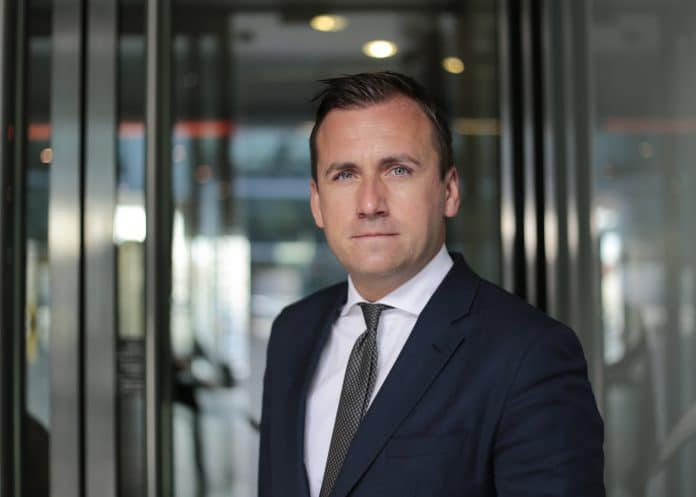- Q2 defined by return of office megadeals, with foreign capital and opportunistic investors flocking back to Europe as COVID restrictions ease
- Logistics, industrial assets remain in high demand across the region
- Supply shortages constrain activity in some markets, such as France
- Southern Europe sees an uptick of interest in the hotel sector, as investors bet on a post-COVID rebound in tourism
Colliers (NASDAQ: CIGI; TSX: CIGI), a global leader in commercial real estate services and investment management, has issued its latest market snapshot for Europe, the Middle East and Africa (EMEA), which shows a resurgence of interest in property markets in the second quarter amid growing investor confidence in the region’s recovery prospects.
Office assets were the main focus as investors bet on a shift back to more traditional working patterns as COVID measures are lifted. Q2 was notable for a return of €500 million-plus ‘megadeals’ in the office sector in markets such as Germany and the UK, of a kind that had largely gone missing in the first quarter as the pandemic resulted in restrictions on movement in many European countries.
“A lot of transactions were delayed in Q1 by lockdowns,” said Richard Divall, Colliers’ director of Capital Markets. “With Europe now having vaccinated many of its most vulnerable people, restrictions are easing and we’re seeing investors coming back, with plenty of deals in the due diligence pipeline likely to close in the second half of the year.”
Offices were not the only segment seeing new momentum in the quarter. Despite the leisure sector remaining relatively subdued, investor interest in hotels – an asset class badly affected by the pandemic – is visibly picking up in tourism hotspots such as Italy and Spain, while there were also signs of life in retail.
“Investors are beginning to position themselves for a boom in post-pandemic tourism, counting on a surge of pent-up demand once COVID restrictions are fully lifted,” said Damian Harrington, Colliers’ Head of Global Capital Markets Research and EMEA Head of Research. “The recent pressure on hotels means those in prime locations are looking increasingly attractive.”
Interest in the private rental sector is also high in markets such as Poland and Ireland, even though some European cities and countries are tightening regulations in favour of owner-occupiers and tenants. The research also showed investment in the industrial and logistics sectors continued to build, in the expectation that the online delivery demand created by lockdowns is here to stay.
Big-money moves return to UK
The UK saw a recovery of property investment in Q2, particularly towards the end of the quarter, with more than £4 billion (€4.6 billion) invested in June alone, compared to £5 billion for the entire second quarter of 2020. The four largest transactions were all offices, led by Brookfield Asset Management’s purchase of the Arlington portfolio for £714 million. Despite the recovery, the £11 billion invested in Q2 was still 20% below the five-year quarterly average, illustrating the effect that COVID-19 has had on activity.
Germany sees megadeals
Investment in Q2 was stronger than in the pre-COVID ’boom‘ years, with investment volume of €14.3 billion led by the return of €500-million-plus ’megadeals‘, with two deals upwards of €1 billion. The quarter also saw the return of foreign investors to Germany, as well as more opportunistic, higher-risk investors who had been deterred by the pandemic.
France lags last year due to supply constraints
The volume of investment in France was €8.1 billion in the first half of 2021, down 29% compared to the first half of 2020. Q2 2021 saw a 35% decline year-on-year, with €3.2bn invested, with the fall particularly notable in the Greater Paris area. These results are not a reflection of a lack of investor interest, but rather a shortage of supply in investible properties, leaving many investors closely monitoring the market from the sidelines.
High share of PRS in Poland
In Q2 2021, Poland recorded approximately €1 billion in closed transactions, which is approximately a 30% decrease compared to the Q1, including PRS transactions which accounted for 44% of the volume. The PRS sector has dominated the landscape with two major deals. Cornerstone/Crestyl and Heimstaden Bostad acquired 2,496 apartments located in the largest Polish cities from Budimex Nieruchomości, while NREP signed a contract with YIT for the development of 1,071 apartments in Warsaw.
Strong activity was also noticed in the industrial sector. The largest transactions included: the acquisition of a portfolio of 5 logistics parks with a total GLA of 209,000 sq m by REINO Capital on behalf of the Grosvenor Group and the acquisition by BentallGreenOak of a logistics park in northern Poland with a GLA of 50,000 sq m.
In the Q2 2021, Indotek, a Hungary-based investor, entered Poland by acquiring a portfolio of four office assets located in Warsaw from Immofinanz for €72.5 million.
“The transaction momentum is expected to increase in the coming quarter as travel restrictions are lifted. We are already observing the first effects – investors, especially from continental Europe, come to visit the property, actively participate in the processes and submit purchase offers with the prospect of finalizing the transaction as early as 2021. It is clear that the interest in the CEE region remains high. In the following quarters we expect new players to enter the market,” says Piotr Mirowski, Senior Partner, Head of Investment Services at Colliers in Poland.
Investors eye hotels in Spain and Italy
Q2 saw a return of investment in the hotel sector, which has struggled over the past year due to COVID-related travel restrictions. In Italy, the tourist magnet of Venice logged one of the biggest deals, with the picturesque Bonvecchiati Hotel bought by ECE for €100 million. In Spain, hotels and logistics were the most popular sectors for investors, in just six months improving on the investment figures achieved throughout full-year 2020.

















